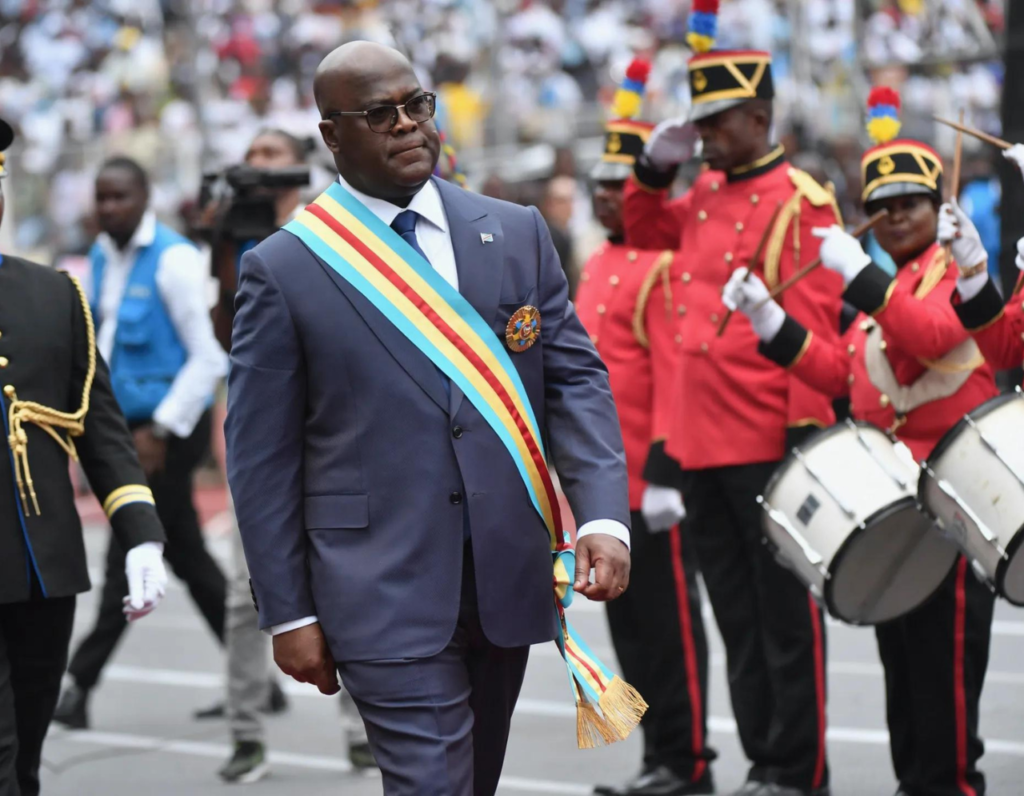Judith Suminwa Tuluka: Breaking Barriers as DR Congo’s First Female Prime Minister

In a historic decision that is set to reshape the political landscape of the Democratic Republic of Congo (DR Congo), Judith Suminwa Tuluka has been appointed as the country’s first-ever female Prime Minister. This groundbreaking move by President Felix Tshisekedi not only highlights the nation’s progressive shift towards gender equality in governance but also positions DR Congo as a beacon of change in a continent that is steadily embracing female leadership in politics.

A New Era of Leadership
Judith Suminwa Tuluka’s appointment is a monumental achievement not only for her personally but also for women across DR Congo and the broader African continent. It signifies a transformative moment in the history of a country that, like many others, has been dominated by male political figures for decades. With this bold step, President Tshisekedi has underscored his commitment to fostering an inclusive government that reflects the diversity and talent of the Congolese population.
Championing Development and Unity
Prime Minister Tuluka steps into her new role with a daunting list of priorities set forth by President Tshisekedi. Top among these are the creation of employment opportunities, youth empowerment, addressing women’s issues, and promoting national cohesion. In a nation grappling with complex challenges, including a persistent conflict in the eastern regions, managing vast mineral resources, and combating entrenched corruption, Tuluka’s leadership is both critical and timely.
Judith Suminwa Tuluka – Facing the Challenges Head-On
DR Congo’s eastern provinces continue to experience conflict and a deepening humanitarian crisis. Additionally, the country’s rich mineral wealth, while a significant asset, requires strategic management to ensure it benefits the entire population. Tuluka’s tenure as Prime Minister comes at a pivotal time when the country seeks to overcome these challenges, revitalize its economy, and ensure peace and security for all its citizens.

The Path Towards Gender Equality
The elevation of Judith Suminwa Tuluka to the Prime Minister’s office is a significant stride towards achieving gender parity in political representation in DR Congo. While Africa has seen notable progress in this arena, with countries like Rwanda leading with over 60% female parliamentary representation, DR Congo’s move is a clear indication of its commitment to breaking the glass ceiling for women in politics.
Leveraging Women’s Leadership
Globally, the inclusion of women in political leadership has been linked to the formulation of more comprehensive policies that address a wide range of societal needs, including healthcare, education, and economic development. As DR Congo’s first female Prime Minister, Tuluka is poised to bring a fresh perspective to governance, leveraging her unique insights to address issues that affect all Congolese, especially women and children.
A Symbol of Hope and Progress
Judith Suminwa Tuluka’s historic appointment is not just a victory for gender equality; it symbolizes hope and progress for a nation eager to overcome its past struggles and build a brighter future. Her leadership represents a new chapter in DR Congo’s journey towards peace, prosperity, and inclusivity.
Looking Forward
As Judith Suminwa Tuluka takes on the monumental task of leading DR Congo through its myriad challenges, the support and collaboration of the Congolese people and the international community will be crucial. Her success will not only further the cause of women in politics but also pave the way for a more stable, prosperous, and united DR Congo.
ALSO READ: Uganda Pioneers Tin Refining with Its First-Ever Plant Set to Enhance Mineral Value
Conclusion: A Milestone for DR Congo and Beyond
The appointment of Judith Suminwa Tuluka as the first female Prime Minister of DR Congo marks a historic moment that transcends national borders, inspiring women across Africa and the world. As she embarks on this journey, her leadership will be instrumental in driving the country towards achieving its goals of development, unity, and gender equality. The significance of her appointment cannot be overstated, as it signals a new era of governance in DR Congo, one where diversity and inclusion are at the forefront of building a stronger, more resilient nation.







Responses